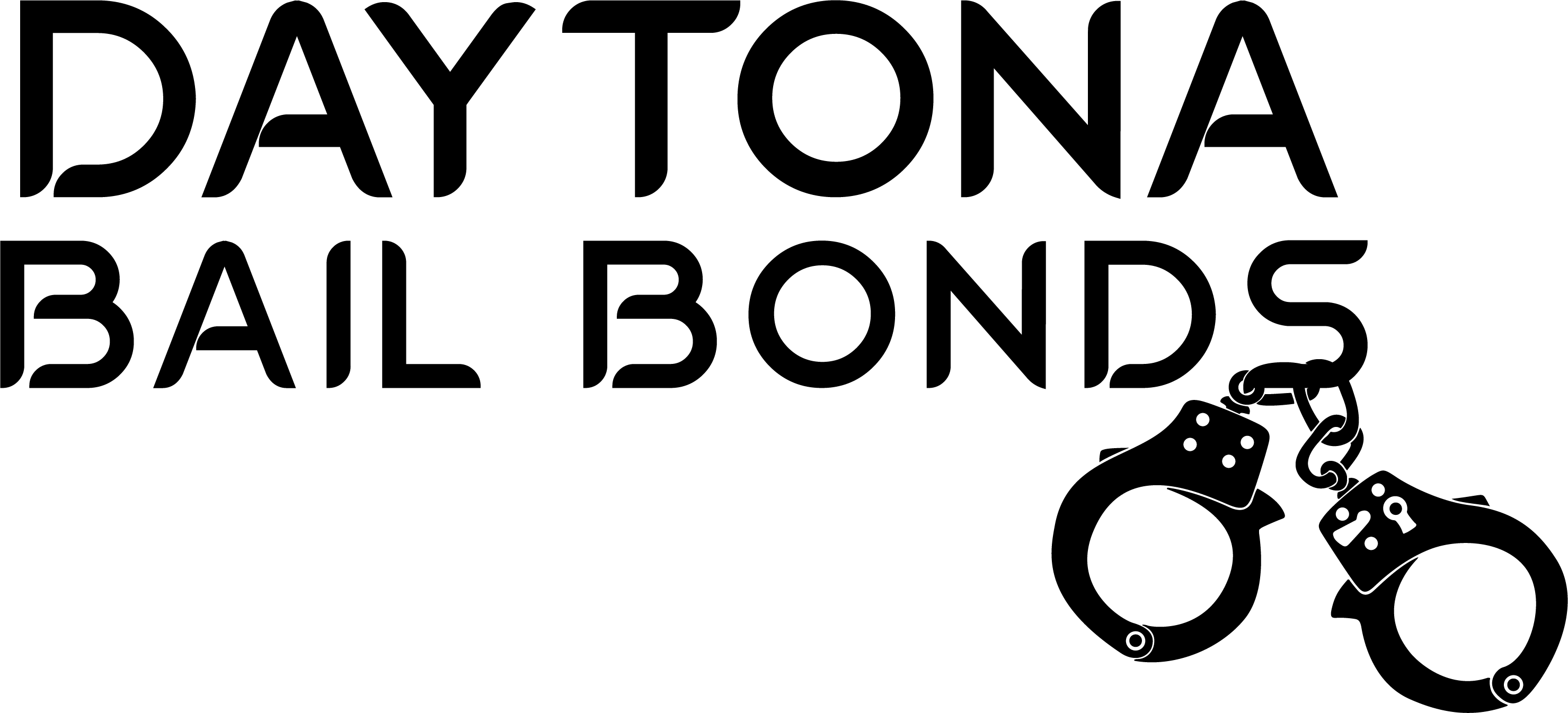Felony Bail Bonds
Felony charges can be severe and life-changing, and being arrested for a felony can be an overwhelming and stressful experience. One of the biggest concerns for an individual facing a felony charge is getting out of jail while awaiting trial.
Everything You Need to Know About Felony Bail Bonds
A felony bail bond is a type of surety bond used to secure the release of an accused person from jail while they await trial for a felony offense. Felony bail bonds are typically set at a high amount; posting the entire amount can be hard or impossible for many people.
When a person wants to file a bond, the bail bond agent’s role comes into play. A bail bondsman is a licensed professional who offers a financial guarantee, or bond, to the court on behalf of the defendant. The
defendant pays a non-refundable fee to the bail bondsman, around 10% of the total bail amount. The bail bondsman puts the rest of the money as collateral.
Now Pay Your FELONY Bail Bonds ONLINE
Affordable Bail Bonds, Available 24/7
A call to Daytona Bail Bonds can be your first good decision when you or a loved one is involved in this type of unfortunate situation.
What is a Felony?
A felony is a serious criminal offense punishable by imprisonment for one or more than that or death in some cases. It is a more severe crime category than a misdemeanor, which typically carries a maximum penalty of one year in jail.
The felony offense includes rape, murder, kidnapping, burglary, arson, grand theft, and drug trafficking. These crimes are considered more harmful to society and carry more severe consequences than less serious offenses.
Felony convictions can have a significant impact on a person’s life, even after they have served their sentence. The felons may face difficulties in housing and finding employment and may lose certain rights, like owning firearms or voting. Moreover, some prisoners may be required to register as sex offenders or can undergo other monitoring forms after release.
In the US, each state has laws regarding felonies involving the definition of specific penalties and offenses associated with them. Federal law also recognizes certain crimes as felonies, like tax evasion, drug trafficking, and white-collar crimes. Overall, felony offenses are considered serious crimes that can have significant consequences for those who commit them.
What are Felony Bail Bonds?
Felony bail bonds are financial arrangements made between a defendant or their representative. A bail bondsman is a person whom one can reach to secure the release of a defendant who has been arrested on felony charges. Felony charges are serious criminal offenses punishable by federal or state prison imprisonment.
A bail bond is a contractual agreement between the defendant or their representative and a bail bondsman. The defendant or their representative pays a non-refundable fee, around 10% of the total bail amount set by the court. The bail bonds agent guarantees the court that the defendant will appear for all scheduled court appearances.
If the defendant fails to appear in court, the bail bonds agent will be responsible for paying the entire bail amount to the court. To mitigate this risk, the bail bond agents require collateral from the defendant or their representative, like a car or home.
Felony bail bonds can be expensive, as the bail amount for felony charges is typically much higher than for misdemeanor charges. However, they offer a way for defendants to secure their release from custody and continue to work and provide for their families while awaiting trial.
What is Felony Charge?
A felony is a serious criminal offense punishable by imprisonment for one or more than that or death in some cases. It is a more severe crime category than a misdemeanor, which typically carries a maximum penalty of one year in jail.
A person who has felony charges imposed on him can have a severe effect on his life. The person may lose voting rights or face restrictions on employment opportunities and difficulties obtaining housing or loans. They can also result in community service, heavy fines, parole, and probation. In some cases, a felony charge can even lead to the death penalty.
The severity of the punishment for felony charges varies depending on the offender’s criminal history, the nature of the offense. It also depends on the jurisdiction in which the crime was committed. In some cases, a plea bargain may be offered to reduce the charge to a misdemeanor or to lessen the sentence in exchange for a guilty plea.
A felony bail bonds charge should be taken very seriously as it can significantly impact an individual’s life. It is vital to seek the advice the representation of a qualified criminal defense attorney if facing such charges.
Florida’s Felony Classifications: Understanding the Severity of Criminal Offenses
In Flordia, felony bail bond offenses are classified into five degrees. They are determined based on the severity of the crime and the potential punishment that could be imposed upon conviction.
The first-degree felony is the most serious and carries potential life imprisonment or the death penalty. For example, crimes that could result in a first-degree felony charge involve intentionally causing great bodily harm on a law enforcement officer, carjacking, and burglary with assault or battery.
The second-degree felony carries a potential penalty of 15 years in prison and a fine of up to $10,000. It includes crimes like extortion, vehicular homicide, and felon in possession of firearms.
The third-degree felony carries a potential penalty of up to 5 years in fines and prison of up to $5,000. It includes crimes like possession of a controlled substance, grand theft, and certain types of fraud.
Capitol Felony is the most serious type of criminal offense and is punishable by death or life imprisonment without the possibility of parole. First-degree murder is an example of a capital felony.
life felony is a serious criminal offense punishable by life imprisonment, with or without the possibility of parole and a fine of up to $15,000 The kidnapping and sexual assault of a child, the sale of children into human trafficking, and the assault of a child under 12 that results in serious injury are are the examples of Life felony charges.
Note: The potential penalties for every degree of a felony offense are maximum sentences and not necessarily the punishment that will imply conviction. Sentencing in Florida is based on several factors, like the defendant’s criminal history, the severity of the crime, and other relevant circumstances.
How Much is Bail For a Felony Cost?
The amount of bail for a felony bail bonds charges varies depending on the type of offense, the jurisdiction in which it was committed, and the defendant’s criminal history. Bail is a sum of property or money posted to secure an accused person’s release from custody while their case is pending.
Generally, the bail amount for a felony is much higher than that for a misdemeanor. It is because felony charges are considered more severe and carry heavier penalties if the defendant is convicted. Bail amounts can range from thousands to several hundred thousand dollars. But it depends on the circumstances of the case.
Courts typically set bail based on the defendant’s severity of the charges, criminal history, and flight risk. Suppose the defendant is considered a flight risk or a danger to the community. The bail amount may be set very high or even denied altogether.
Daytona Bail Bonds – Daytona Beach
24/7 Posting Felony Bail Bonds Online for Felony Charges in Volusia County, FL Including Daytona Beach, South Daytona Beach, Edgewater, New Smyrna Beach, Holly Hill, and Port Orange.
Other types of Bail Bonds Daytona Bail Bonds writes:
- Surety Bail Bonds
- DUI Bail Bonds
- Assault Bail Bonds
- Trespassing Bail Bonds
- Shoplifting Bail Bonds
- Attempted Murder Bail Bonds
- Domestic Violence Bail Bonds
- Free Warrant Check
Why Daytona Bail Bond is the Perfect Agency For Felony Bail Bonds.
Free Warrant Search
Fast Response Time
Bail Financing
Bail Bonds For Numerous Cases
Licensed Bail Bond Agents
24/7 Availability
Affordable Bonds
Friendly and Professional Bail bonds Agents
FAQ
How long does it take to get a felony bail bond in Voulusia County, FL?
Can a defendant be released on their own recognizance for a felony offense?
Note: this option is only available to defendants with a low risk of flight or danger to the community.

